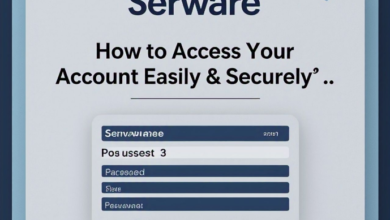Understanding Weaponized Incompetence: What It Is and Why It Matters

Weaponized incompetence is a term that has been gaining attention in recent years. It refers to a situation where someone pretends to be incapable of doing something to avoid responsibility or to manipulate others into doing it for them. This behavior can happen in many different settings, like at home, work, or even among friends. When someone uses weaponized incompetence, they are not actually unable to perform a task—they just act that way to avoid doing it.
This behavior can be harmful to relationships and teams, as it creates unfair burdens on others. If you find yourself constantly taking on tasks that others are pretending they can’t do, it may be a sign that you’re dealing with weaponized incompetence. Understanding this concept is important so you can address it effectively and prevent it from causing frustration or resentment in your relationships.
What Is Weaponized Incompetence?
Weaponized incompetence is when a person deliberately pretends to be bad at something to avoid doing it. For example, someone might say they don’t know how to clean the kitchen, even though they are perfectly capable of doing so. By doing this, they try to make others feel sorry for them or take on the task themselves.
This behavior is often seen in relationships, where one partner might pretend they don’t know how to cook, clean, or complete chores. In the workplace, it can show up when someone acts like they don’t know how to do their job to avoid responsibilities. People use this tactic to make others pick up the slack or to avoid tasks they don’t like doing.
Why Do People Use Weaponized Incompetence?
There are several reasons why people might use weaponized incompetence. One of the most common reasons is to avoid tasks they find unpleasant. Instead of saying they don’t want to do something, they pretend they can’t do it at all, hoping someone else will take over.
- They want to avoid responsibility.
- They don’t want to do something difficult or boring.
- They hope others will feel sorry for them and help out.
- They don’t want to deal with the consequences of failing at a task.
This strategy can be effective in the short term, but it can cause serious problems in the long run. If one person consistently uses this behavior, it can lead to frustration, resentment, and even burnout in others.
The Impact of Weaponized Incompetence on Relationships
Weaponized incompetence can have a big impact on relationships, especially in partnerships or families. When one person constantly avoids doing their fair share, the other person may feel overwhelmed or unappreciated. This can lead to arguments, a sense of unfairness, and a breakdown in trust.
In romantic relationships, this behavior is often seen when one partner avoids chores or other responsibilities, leaving the other to take care of everything. It can cause feelings of anger or frustration, as one person feels like they are doing all the work while the other is pretending to be helpless.
In friendships or even at work, weaponized incompetence can cause people to feel taken advantage of. When someone is always pretending they can’t do something, it can create a sense of unfairness and lead to people resenting them.
How to Recognize Weaponized Incompetence
Recognizing weaponized incompetence can be tricky, especially if the person doing it is good at pretending they don’t know how to do something. However, there are some common signs to look for.
- They never seem to learn: Even if they’ve been shown how to do something many times, they still pretend they can’t do it.
- They avoid tasks: They always find a way to get out of doing something, even when it’s their responsibility.
- They rely on others to do things for them: They expect someone else to do tasks that they are fully capable of handling.
- They act helpless: They pretend to not know how to do something, even though it’s not that difficult.
If you notice these signs, it might be time to address the behavior and set clear boundaries about what is expected.
How to Deal with Weaponized Incompetence
Dealing with weaponized incompetence can be challenging, but it’s important to address it early on before it becomes a bigger issue. Here are some steps you can take to handle this behavior:
- Set clear expectations: Make it clear what tasks need to be done and who is responsible for them.
- Communicate openly: Have a conversation with the person using weaponized incompetence. Let them know that you recognize their behavior and explain how it affects you.
- Be firm: Don’t give in to the pressure to do everything for them. Make it clear that everyone needs to contribute fairly.
- Offer support: If the person genuinely needs help learning a task, offer to teach them, but don’t let them use it as an excuse to avoid doing things.
By taking these steps, you can help reduce the impact of weaponized incompetence and encourage a more balanced and fair relationship.
Weaponized Incompetence in the Workplace
Weaponized incompetence is not limited to personal relationships—it can also happen in the workplace. At work, people might pretend they don’t know how to do a task to avoid responsibilities or to pass the work onto someone else. This can lead to resentment among colleagues, especially if one person is constantly dumping their tasks on others.
In a work environment, weaponized incompetence can create an unfair distribution of work. It can also affect team dynamics, as others may feel they are carrying the weight of the work while someone else avoids it. This can lead to decreased morale and even affect the quality of work produced.
To prevent weaponized incompetence in the workplace, it’s important for managers to set clear expectations and hold everyone accountable. It’s also crucial to foster a culture of fairness and cooperation, where everyone is expected to contribute to the team’s success.
Dealing with Weaponized Incompetence in Family Life
Weaponized incompetence can have a major impact in family life as well. In families, one person might pretend they can’t take care of household chores or responsibilities, making the other family members feel like they are doing all the work. This can lead to tension, frustration, and even resentment.
In family life, it’s important to divide responsibilities fairly and make sure everyone is pulling their weight. Having open conversations about expectations and responsibilities can help prevent weaponized incompetence from becoming a problem.
Why Weaponized Incompetence Should Not Be Tolerated
Allowing weaponized incompetence to continue unchecked can have long-term effects on relationships, whether personal or professional. People may begin to feel used, disrespected, or overwhelmed, which can harm the relationship. Over time, this behavior can erode trust and create an unhealthy dynamic.
If you notice weaponized incompetence in your relationships, it’s important to address it directly. By setting clear boundaries, encouraging open communication, and ensuring that everyone contributes fairly, you can help prevent this behavior from causing harm.
Conclusion
Weaponized incompetence is a behavior where someone pretends they can’t do something to avoid responsibility. While it may seem like a harmless way to avoid certain tasks, it can lead to frustration, resentment, and imbalance in relationships. Whether at home, work, or among friends, it’s important to recognize weaponized incompetence and take steps to address it.
By setting clear expectations, communicating openly, and ensuring fairness, you can help prevent weaponized incompetence from causing harm. Don’t let anyone use this behavior to avoid their responsibilities and create unfair burdens on others. Instead, encourage a culture of cooperation, where everyone does their fair share.
FAQs
Q: What is weaponized incompetence?
A: Weaponized incompetence is when someone pretends to be bad at something to avoid doing it or to make others do it for them.
Q: How can I tell if someone is using weaponized incompetence?
A: If someone always avoids tasks or pretends they can’t do something they should be able to handle, they may be using weaponized incompetence.
Q: How should I deal with weaponized incompetence?
A: Communicate openly, set clear expectations, and make sure everyone contributes fairly to avoid unfair burdens.
Q: Can weaponized incompetence happen at work?
A: Yes, people can use weaponized incompetence in the workplace to avoid responsibilities and create unfair workloads for others.
Q: Is weaponized incompetence harmful to relationships?
A: Yes, it can cause frustration, resentment, and imbalance in relationships, leading to trust issues and unhappiness.




